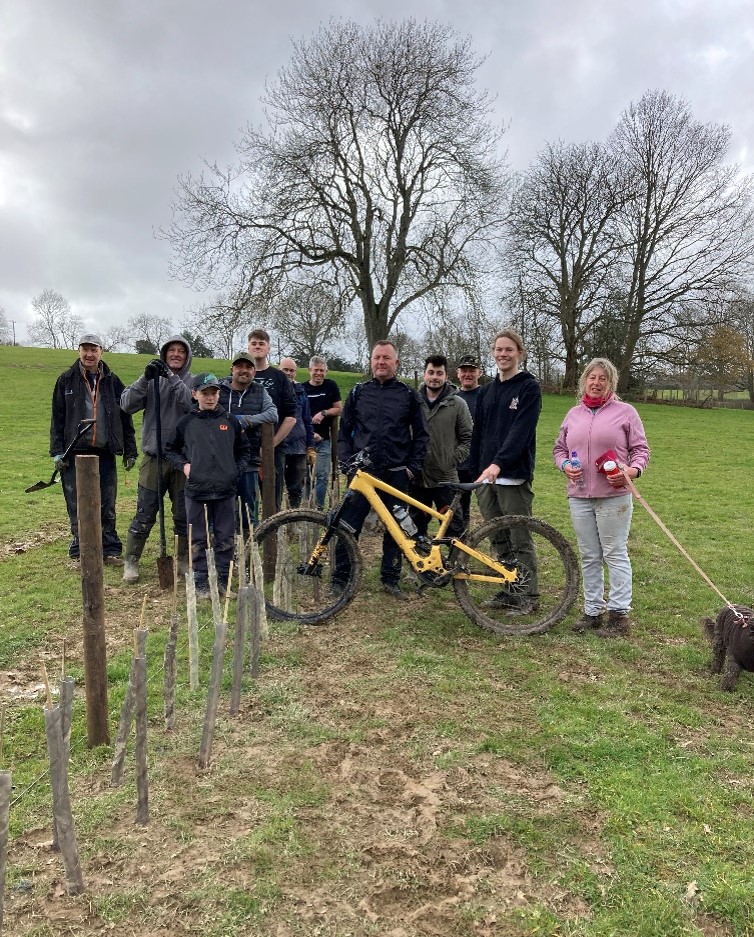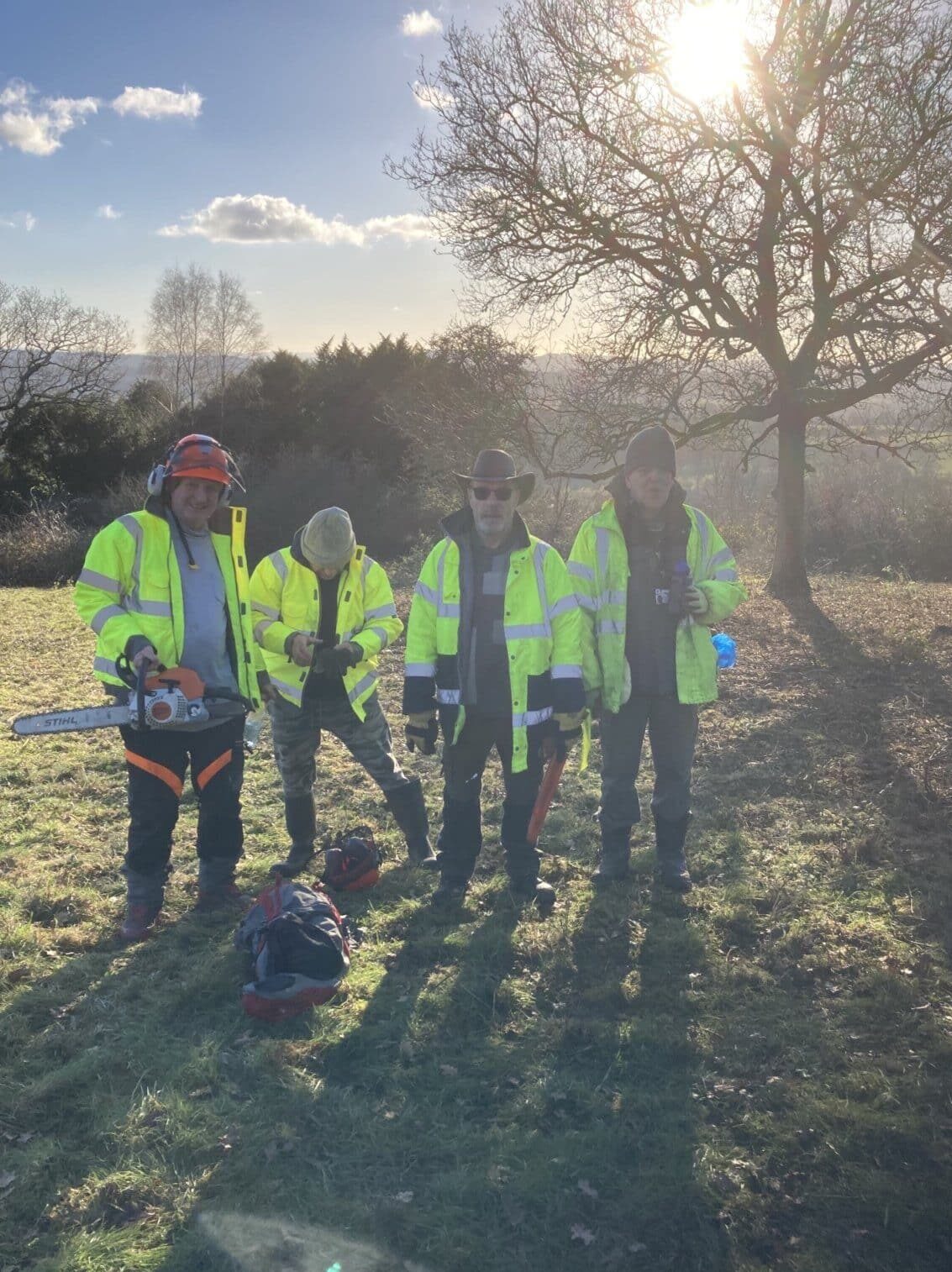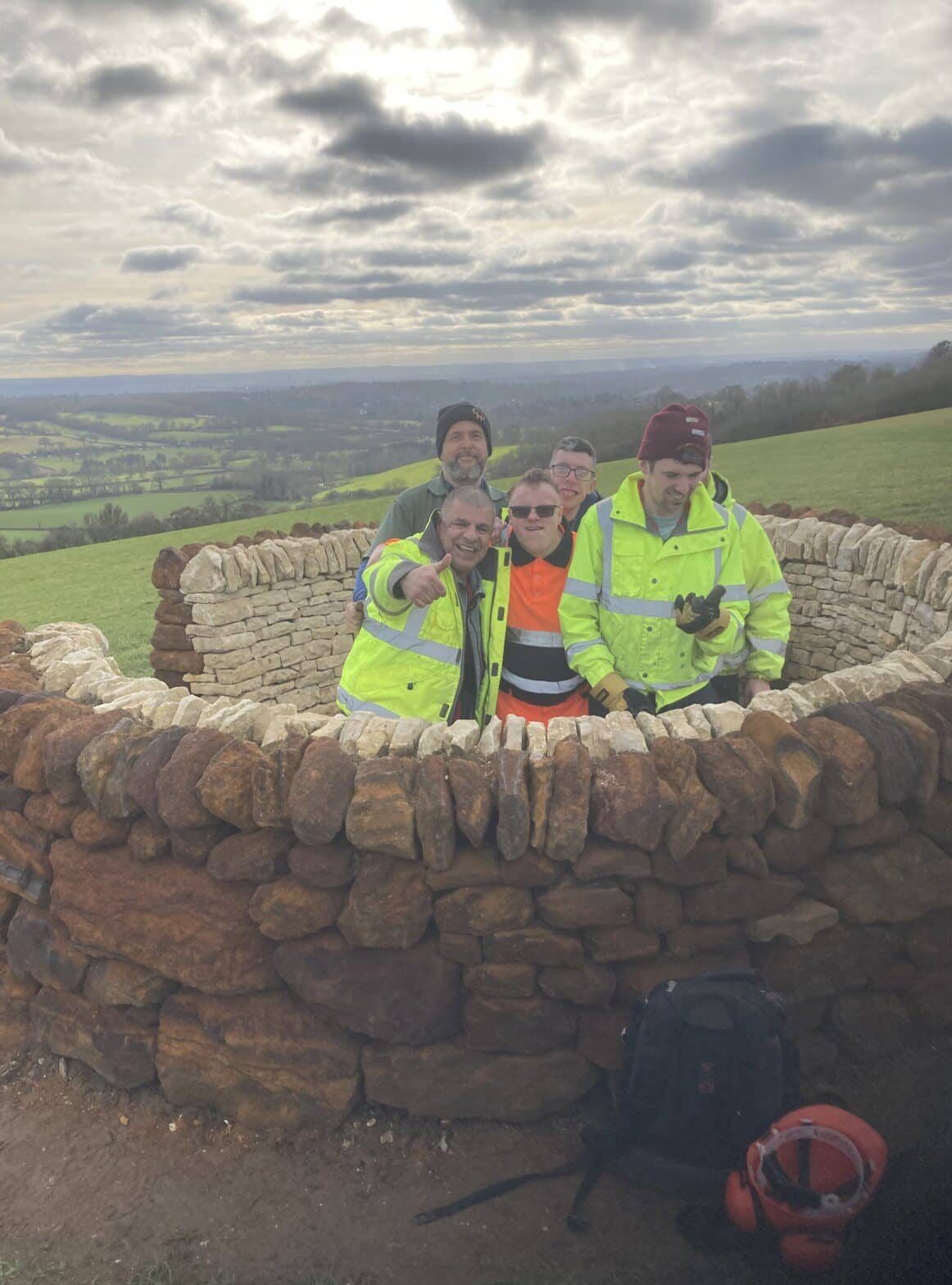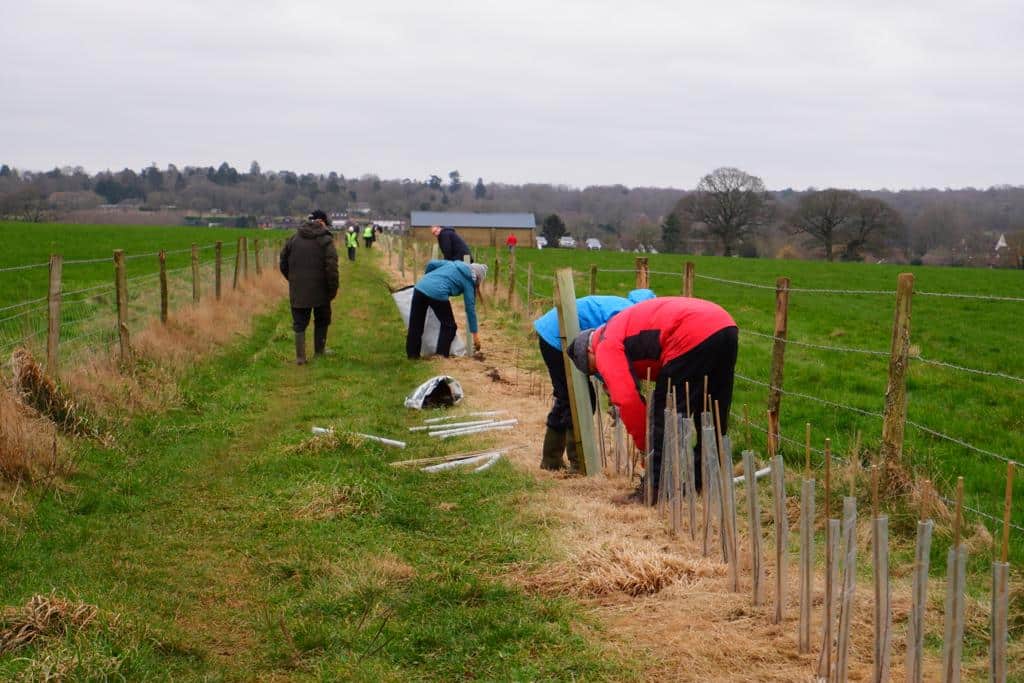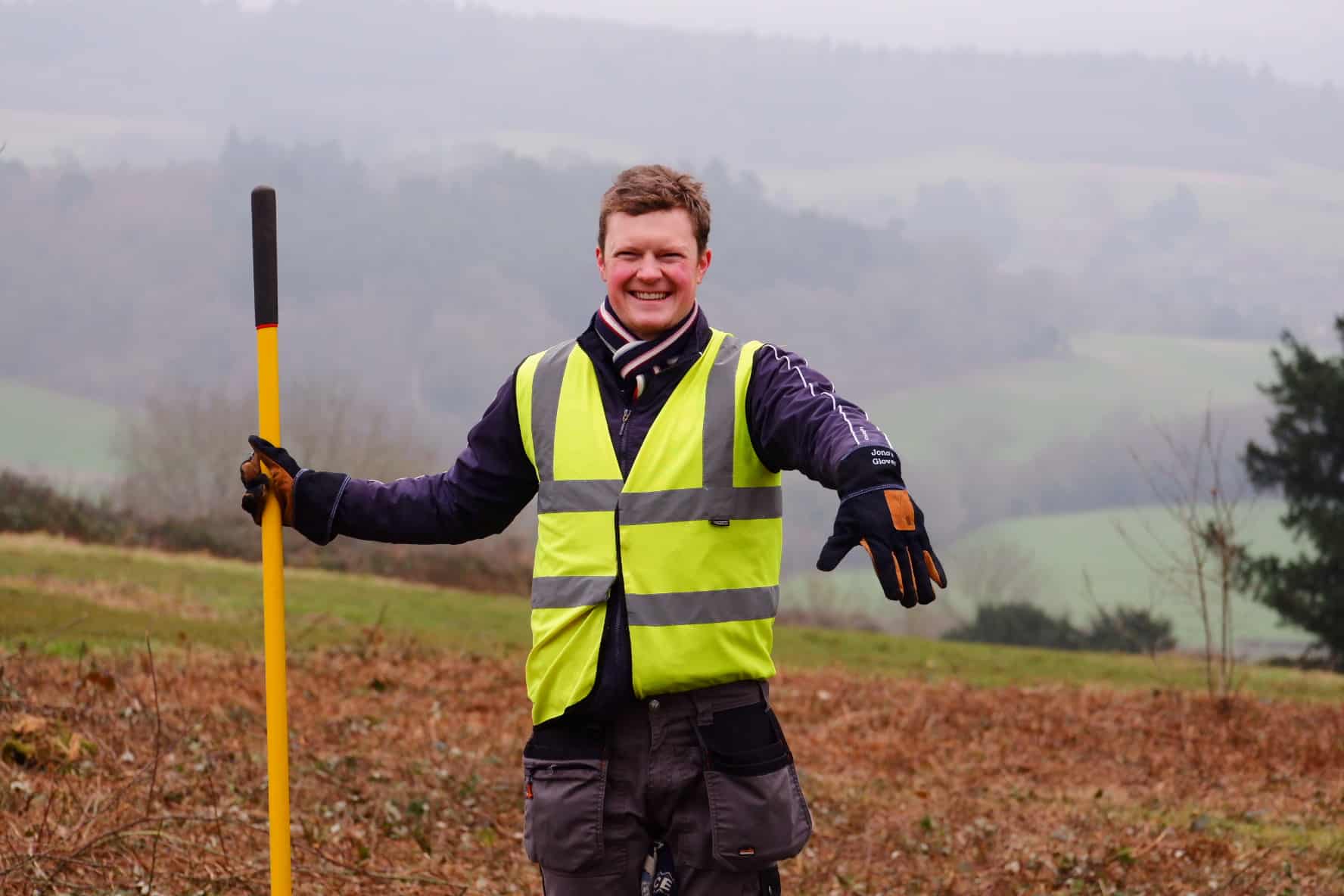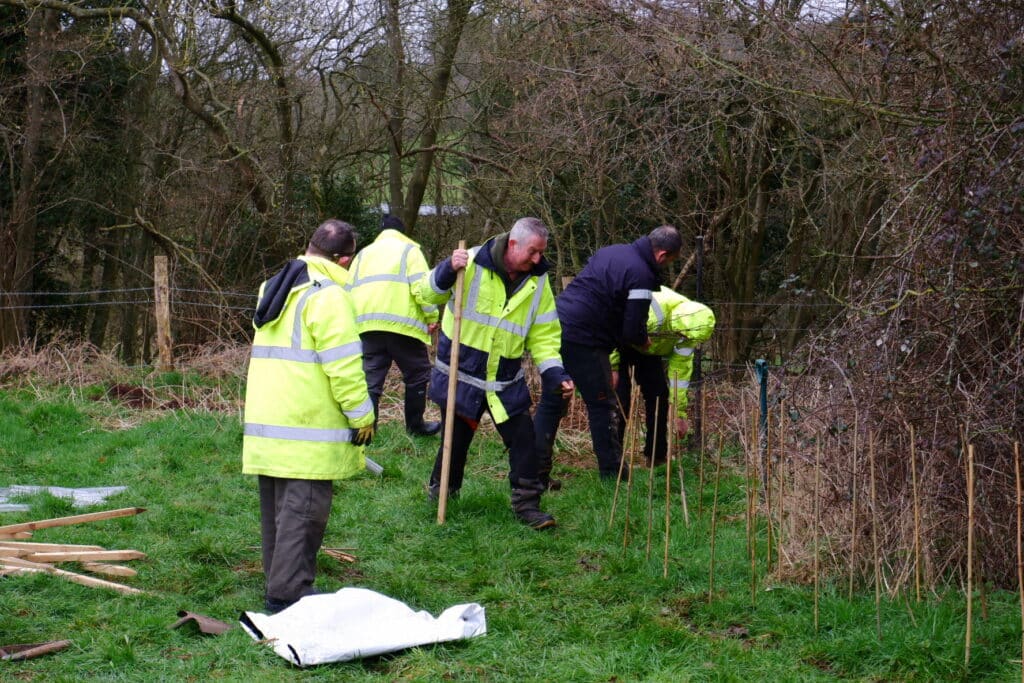
Volunteer in the Surrey Hills
Are you passionate about nature and eager to make a tangible difference in the stunning Surrey Hills?
Join the Surrey Hills Conservation Volunteers and embark on exciting projects that blend hands-on conservation with the joy of exploring this beautiful landscape.
As a volunteer, you’ll dive into a variety of engaging activities, such as:
- Practical Conservation Tasks: Get your hands dirty with hedge planting, tree popping, or scrub clearance, all vital for maintaining and enhancing our natural habitats.
- Trail Audits: Explore scenic walking, cycling, and equestrian routes while ensuring they’re accessible and enjoyable for all.
- Wildlife Surveys: Become a nature detective by monitoring local wildlife, contributing to important biodiversity records.
Whether you’re looking to commit regularly or prefer one-off community events, there’s a place for you. Our flexible opportunities cater to various interests and schedules.
Ready to embark on this rewarding adventure? Reach out to our Project and Volunteer Coordinator, Kate Bannister, at volunteering@surreyhillssociety.org to learn more and get involved.
How you can make space for nature
Enquire about becoming a Conservation Volunteer.
The Surrey Hills Society also creates bespoke volunteering days for individual community groups and corporate volunteering days. These task days all contribute to the work of Surrey Hills Conservation Volunteers.
Support this rare and special habitat with the Heathland Connections project.
Don’t be too tidy in the garden and let the wild flowers in your lawn bloom, providing a feast of nectar for our hungry pollinators. Longer grass also allows for a better shelter for creepy crawlies and provides habitats for amphibians and small mammals.
Join legions of gardeners and say “no” to the mow during May as part of the Plantlife Every Flower Counts campaign. It’s simple, lock the lawn mower away for a month let your lawn provide a feast of nectar and pollen for bees, butterflies and other insects.
It’s simple and fun to attract bugs to the garden. Find a quiet spot, and pile up rocks, bricks, logs, twigs and leaves. Then do not disturb. This will become home to all sorts of important insects such as beetles and spiders. The Woodland Trust have got some great ideas on how to attract and create the perfect home for all wildlife, from Bug hotels and Log pile lodges to Pine cone palaces for ladybirds!
Solitary bees are important pollinators and a gardener’s friend. For those wanting tips on how to build a bee hotel The Wildlife Trust have got great advice on just what our ‘Buzzy’ friends like!
Birds are an important part of your garden’s ecosystem, and creating bird boxes and putting out food will help them thrive. Putting out a variety of different bird feed is a great way to attract different birds to your garden and help out bird populations at the same time. With nearly 30% of birds in Great Britain being threatened with extinction and the likelihood of extreme weather events to increase due to climate change, providing extra food could really help local bird populations flourish. The RSPB have got some great ideas on what to feed birds, watch this short video from wildlife gardening guru, Adrian Thomas.
Bats are a sign of a green and healthy environment, so creating a garden that’s good for bats will also be good for people. These small and fascinating creatures often live in close proximity to us, using our gardens as an important source of food, water and shelter. As their natural habitats become more scarce, our gardens are playing a more important role in securing a future for bats. The Bat Conservation Trust have a step by step guide to building your own bat box to encourage these wonderful creatures to your garden.





